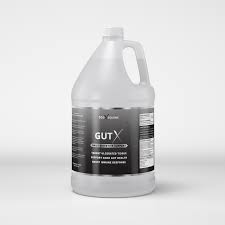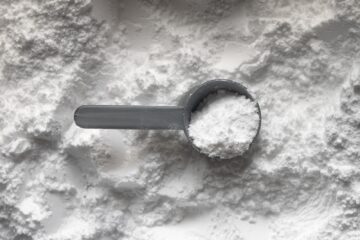Does the FDA Protect Our Horses?

Over the years I have been engaged in a number of discussions regarding claims of efficacy by feed and supplement companies.
Most consumers assume that what we feed our horses is subject to the same regulation as our food. Many feed and supplement companies use this belief to market products that are largely ineffective and sometimes harmful to our horses without fear of action from any regulatory agency.
My information on this subject has always come from trusted advisors in the industry. I had never been motivated to actually drill down into these statements for my own validation. Since I plan on focusing on more accountability for claims of efficacy by these companies I thought I would do my own investigation.
I’d like to share the details directly from the FDA website so that you will understand how important it is to question everything feed and supplements claim.
The Definition of a Drug
The FDA definition of a drug for “humans and other animals” is:
“If the intended use is to treat or prevent a disease, then the product is a drug.”
When a supplement company claims that its product is used to “treat and prevent ulcers” under FDA guidelines they are out of compliance with FDA regulation because these claims of efficacy meet the definition of a drug.
The definition goes further:
“If the intended use is to affect the structure or function of the body and this structure or function effect isn’t derived mainly from the product’s nutrition, taste, or aroma, then it’s a drug.”
This statement makes it a bit trickier to define a drug. “Derived mainly from nutrition, taste or aroma.”
A feed or supplement company can make any claim they like about their product’s nutrition, taste or aroma.
“Horses love the taste of our beet pulp feed” is clearly legitimate.
What about, “extra amino acids to build muscle mass and aid in exercise recovery”? The claim affects the structure AND function of the body. Since amino acids are nutrients these results are derived exclusively from nutrition. This claim passes the test of not being a drug.
“Marine sourced calcium balances stomach pH” is perfectly fine because the only efficacy it claims is that it will counteract the stomach acid balancing the pH of the stomach.
If this company were to add “…which prevents gastric ulcers” the product would technically require a drug approval.
General Recognized As Safe (GRAS)
There are thousands of ingredients of animal feed that are documented in the GRAS category. The key word is “generally”.
“Generally” means that an ingredient used in the application and dosage it was tested at is “safe”. Potassium is a “safe” ingredient but when fed in sufficient quantities to a HYPP horse it causes problems.
Companion Animal v. Livestock
Pets have much greater regulatory protection than livestock.
Companion animals are fully dependent upon supplemental nutrition to maintain their health and lead a natural life.
Horses are considered livestock because if we turn them out on suitable forage they will live a natural life without any supplemental nutrition. This allows feed and supplement manufacturers some latitude.
It goes further with horses since in the United States horses are not used as a food for human consumption. Since beef and dairy cattle products end up in the human food chain, feed and drugs are subject to additional regulation and inspection that may not be applied to horses.
Essentially, there are very few regulations on what can be fed to a horse and even less enforcement since the only animal suffering potential harm from a supplement is the horse.
Enforcement
The FDA does a pretty fair job of policing the food and drug supply for humans. However, for those of you who think that the FDA is giving the same resources to our animals outside of the food chain…
FDA carries out its responsibility for the regulation of animal food in cooperation with State and local partners through a variety of mechanisms such as cooperative agreements, contracts, grants, memoranda of understanding, and partnerships. For instance, FDA cooperates with the Association of American Feed Control Officials (AAFCO) and the States for the implementation of uniform policies for regulating the use of animal food products, including the establishment of uniform feed ingredient definitions and proper labeling to ensure safe use of animal foods.
The above paragraph paints a clear picture that FDA takes a very soft stance on enforcement and compliance relying on AAFCO and state regulatory agencies to police animal food.
The following paragraph is extremely clear with no gray areas. The strict regulations surrounding human nutraceuticals do not apply to animal supplements. This decision was upheld by the SCOTUS.
For “food for humans,” the Dietary Supplement and Health Education Act (DSHEA) of 1994, exempts, for instance, substances from regulation as food additives or drugs if the product meets the definition of a dietary supplement. For food for animals, the agency’s assessment of the law is that it does not apply to animal food, including pet food.
However, the pet lobby is strong and brings attention to any companies that may be in violation of any of the few regulations surrounding pet foods.
What About Horses?
We all love our horses as part of the family but what we must realize is that keeping horses as “pets” is a very recent phenomenon. It’s really only been in the past 50 years that horses have been elevated from work, racing and competition to bestie!
Even at that, the number of 9 million domestic horses in the United States pales in comparison to the 140 million dogs and cats.
Unfortunately there are many thousands of feed and supplement companies trying to carve out a slice of the high dollar horse care pie. Far too many for any regulatory agency to pursue and punish.
If you apply the human regulations to horse supplements you would find numerous regulatory violations and I would use that as a baseline for choosing a supplement.
When you’re reading the label or ad for a supplement there can be NO CLAIM OF TREATMENT OR PREVENTION OF DISEASE OR CONDITION otherwise it is a violation of FDA regulations.
“Improve coat condition and bloom” is a fair claim.
“Prevents and treats laminitis” is not.
Do some of these supplements actually work? Perhaps. Perhaps not consistently.
I supplement my 27 year old OTTB with Vitamin C to prevent her bouts of cellulitis. Why? Since I started using it the frequency and severity of her attacks have been drastically reduced. There are no studies to support the use of Vitamin C to treat or prevent cellulitis but it seems to be working.
One important distinction. The jar of Vitamin C doesn’t claim to do anything other than provide a bioavailable source of Vitamin C.
Most supplements aren’t effective. Many are benign but some can be quite harmful. It is up to each of us as horse owners to monitor what is given to our horses.
On the other hand, it is unrealistic to expect that every supplement will go through the long and expensive process of gaining FDA approval. I’m not advocating avoiding any supplement that doesn’t pass the litmus test. However, I DO encourage all of you to use some critical thinking skills by doing some research to see if there are any clinical findings that support claims.
I would also encourage you to avoid supplements in lieu of approved treatments. Delaying treatment is potentially harmful to your horse. A full course of Gastroguard is expensive but wasting your money on unproven treatments will only add to the expense as well as subject your horse to dealing with a condition for longer than necessary.
One last thing, and it’s kind of petty.
For the folks in social media that pushed back on my warnings claiming that “a company can’t make those claims without getting into trouble”….a big, long raspberry!


